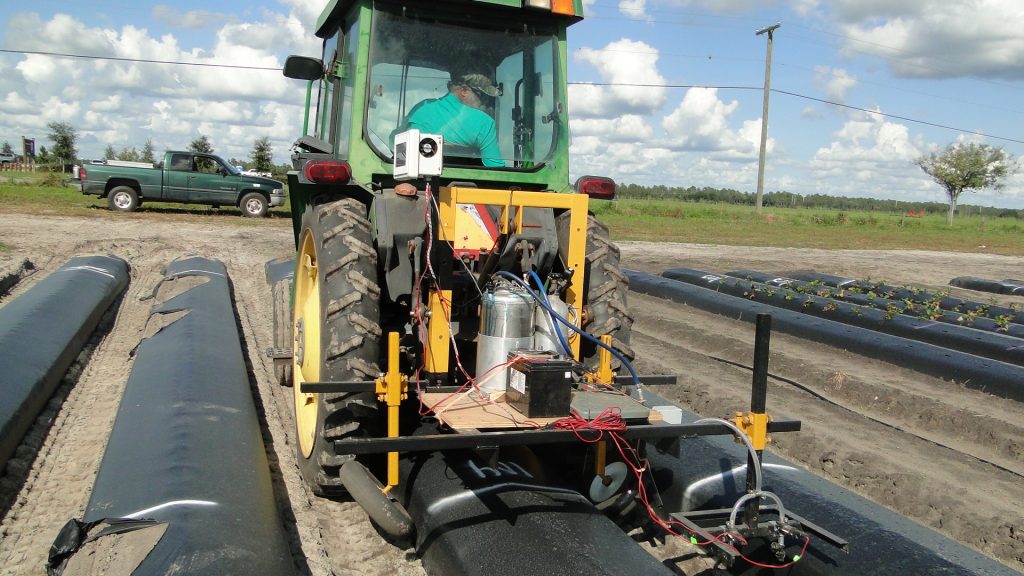
BALM, Fla. — The future of farming is being researched today with artificial intelligence (AI).
University of Florida scientists Nathan Boyd and Arnold Schumann hope to help growers in the strawberry industry, a $300 million-a-year sector in Florida, with weed control.
They want to reduce the amount of herbicide spray strawberry growers use during the season. That saves farmers money and helps eliminate unnecessary chemical applications.
If a grower uses an inexpensive herbicide that costs $30 per acre and cut the sprays in half, the farmer will save $15 per acre.
“That doesn’t sound like much, but if you have 100 acres, that is $1,500,” Boyd said. “Then add in the costs of the number of times you have to refill the herbicide tank that you’ll need in order to spray the whole field, the labor for the driver who refills the tank and mixes the herbicide, and the numbers start to add up.”
Success Rate
So far in the UF research, the scientists are killing up to 90% of the weeds. A smart spray system is mounted to a tractor-pulled sprayer. Precise spraying depends on multiple factors, including the types of weeds that scientists target and the tractor speed that applies the sprays, said Boyd, a UF/IFAS associate professor or horticultural sciences.
Boyd and Schumann – a professor of soil and water sciences at the Citrus Research and Education Center in Lake Alfred — are using AI to detect and identify weeds within a crop canopy.
Boyd and his team trained AI programs to scan for weeds in the images collected by a camera. Once detected, a computer sends a signal to the spray system to spray the herbicide only on the weeds.
“This is done while moving through the field on a tractor, so you have to be able to detect weeds and hit a moving target,” Boyd said.
Boyd presented his early findings on precision herbicide spraying on strawberry plasticulture during May’s Florida Ag Tech conference.
“If you use a tractor-pulled sprayer, our technology will reduce fuel consumption by reducing the number of times you need to drive back to your spray facility to fill your tank and mix the herbicide,” he said. “If you are using a lot less spray, it also means you can use a smaller tank and therefore a smaller tractor with lower fuel consumption. That is just the beginning, though.”









